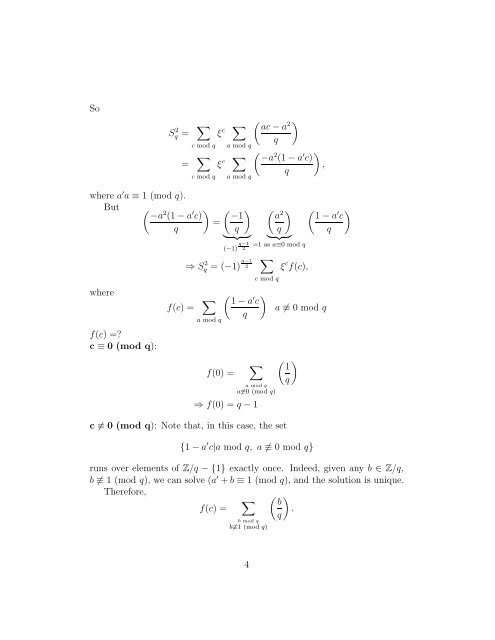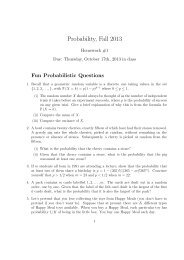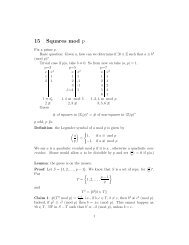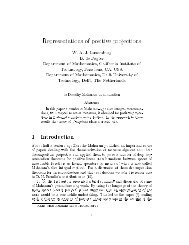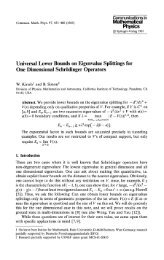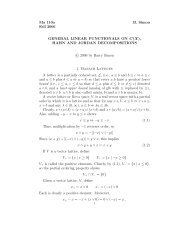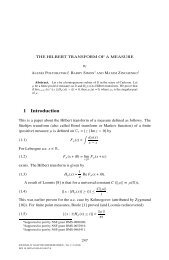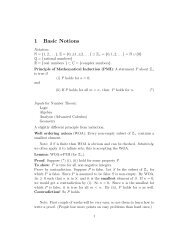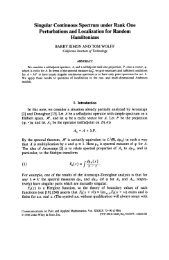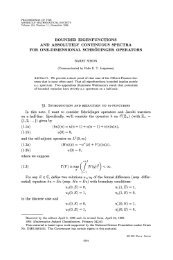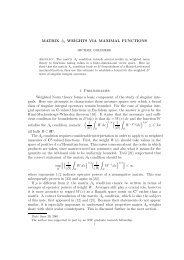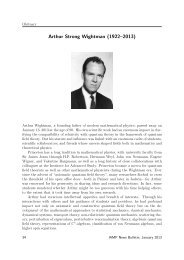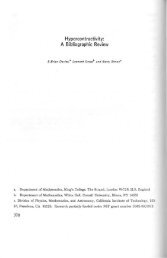16 The Quadratic Reciprocity Law - Caltech Mathematics Department
16 The Quadratic Reciprocity Law - Caltech Mathematics Department
16 The Quadratic Reciprocity Law - Caltech Mathematics Department
Create successful ePaper yourself
Turn your PDF publications into a flip-book with our unique Google optimized e-Paper software.
So<br />
where a ′ a ≡ 1(modq).<br />
where<br />
S 2 q = <br />
c mod q<br />
= <br />
But −a 2 (1 − a ′ c)<br />
f(c) =?<br />
c ≡ 0(modq):<br />
q<br />
c mod q<br />
<br />
c<br />
ξ<br />
2 ac − a<br />
a mod q<br />
2 ′ −a (1 − a c)<br />
<br />
c<br />
ξ<br />
a mod q<br />
<br />
−1<br />
=<br />
q<br />
<br />
(−1) q−1<br />
2<br />
⇒ S 2 q =(−1) q−1<br />
2<br />
f(c) = <br />
a mod q<br />
f(0) =<br />
q<br />
q<br />
2 a<br />
q<br />
<br />
=1 as a≡0 modq<br />
<br />
c mod q<br />
′ 1 − a c<br />
q<br />
<br />
a mod q<br />
a≡0 (modq)<br />
⇒ f(0) = q − 1<br />
c ≡ 0(modq): Note that, in this case, the set<br />
ξ c f(c),<br />
<br />
,<br />
a ≡ 0modq<br />
<br />
1<br />
q<br />
{1 − a ′ c|a mod q, a ≡ 0modq}<br />
′ 1 − a c<br />
runs over elements of Z/q −{1} exactly once. Indeed, given any b ∈ Z/q,<br />
b ≡ 1(modq), we can solve (a ′ + b ≡ 1(modq), and the solution is unique.<br />
<strong>The</strong>refore,<br />
f(c) =<br />
<br />
b mod q<br />
b≡1 (modq)<br />
4<br />
<br />
b<br />
.<br />
q<br />
q


